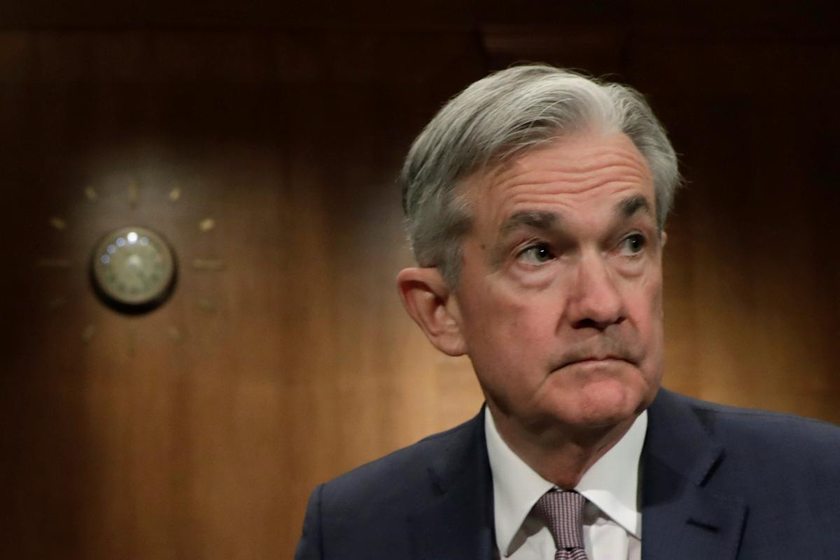SAN FRANCISCO (Reuters) – With the speedy world unfold of the brand new coronavirus and the U.S. inventory market struggling its worst week because the Nice Recession, central bankers world wide are underneath rising stress to cut back borrowing prices to create a cushion towards financial hurt. Up to now they’ve largely resisted. Following are a few of their latest remarks:
FEDERAL RESERVE CHAIR JEROME POWELL, Feb. 28:
“The basics of the U.S. economic system stay robust. Nonetheless, the coronavirus poses evolving dangers to financial exercise. The Federal Reserve is carefully monitoring developments and their implications for the financial outlook. We’ll use our instruments and act as acceptable to help the economic system.”
SWISS NATIONAL BANK VICE-CHAIRMAN FRITZ ZURBRUEGG, Feb. 28:
“The virus might have an effect on the outlook for the Swiss economic system. All the pieces depends upon how huge it spreads…If we conclude that financial situations should be adjusted, we’ll decrease the SNB key charge additional.”
DALLAS FED PRESIDENT ROBERT KAPLAN, Feb. 28:
“I’ll be rigorously watching credit score spreads, which up until now, apart from for weaker credit, they’ve widened however not considerably. However I’ll be watching that. And a Fed funds adjustment traditionally has helped if you’ve bought a extreme tightening in monetary situations so I’ll be looking ahead to that….I’ll be ready to make a judgment and have a judgment on what I believe we should do as we go into the March assembly and clearly in subsequent conferences this yr.”
ST LOUIS FED PRESIDENT JAMES BULLARD, Feb. 28:
“In my opinion, additional coverage charge cuts are a chance if a world pandemic really develops with well being results approaching the size of extraordinary influenza, however this isn’t the baseline case right now…I’m keen to react if that scenario will get worse and there appears like there will likely be a significant impact on the U.S. economic system, and I believe it might be an efficient response. However we must get to that juncture.”
BUNDESBANK PRESIDENT AND ECB POLICYMAKER JENS WEIDMANN, Feb. 28:
“It is a very complicated financial coverage challenge which, for my part, doesn’t require acute financial coverage motion.”
LITHUANIA CENTRAL BANK GOVERNOR AND ECB POLICYMAKER VITAS VASILIAUSKAS, Feb. 28:
The ECB has a “wait and see strategy,” he mentioned, however “there isn’t any downside for the governing council to fulfill in some extraordinary manner, to not wait till the subsequent financial coverage assembly.”
EUROPEAN CENTRAL BANK CHIEF CHRISTINE LAGARDE, Feb. 27:
“It’s a fast-developing phenomenon which requires that we monitor very rigorously.” The financial institution would decide if the coronavirus was set to trigger a “long-lasting shock” she mentioned. “However we’re definitely not at that time but.”
BANK OF ENGLAND DEPUTY GOVERNOR JON CUNLIFFE, Feb. 27:
“If it’s a pure antagonistic provide shock, there may be not a lot financial coverage can do…If we hit a giant world shock, then one would wish to use one’s coverage area – it’s a danger administration level – rapidly, to keep away from getting nearer to a world liquidity lure. However that’s if one hits that shock, reasonably than the place we’re at current.”
BANK OF KOREA GOVERNOR LEE JU-YEOL, Feb. 27:
“For now, selectively deploying micro-policies to service sectors and different susceptible industries can be a more practical set of responses than adjusting the (coverage) charge.”
CHICAGO FED PRESIDENT CHARLES EVANS, Feb. 27:
“I believe it might be untimely till we’ve extra knowledge and have an concept what the forecast is to consider financial coverage motion,.”
BANK OF JAPAN BOARD MEMBER GOUSHI KATAOKA, Feb. 26:
“I don’t assume the BOJ must take extra financial easing steps now in response to the coronavirus outbreak…. We have to first have a look at how critical the impression from the outbreak can be.”





